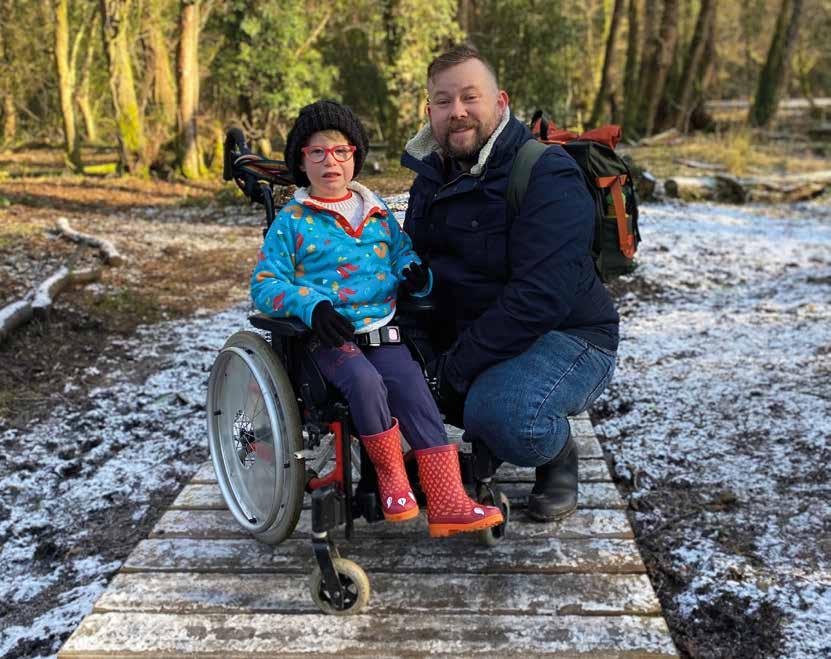
3 minute read
Introduction
Should the Church be a more accessible and welcoming place for all, regardless of their physical, mental or learning needs? I sincerely hope that the resounding answer to that is yes, not least because, as Fr James Lawson reminds us later in this issue, Jesus challenges us to “hurry out to the streets and alleys of the town, and bring back the poor, the crippled, the blind, and the lame.” But often ‘should’ is something we can hide behind, it can be come “we tried, but.” For me, the welcome and inclusion of all into the full flourishing of the church is a must.
So why must the Church be a more accessible and welcoming place for all? Because the Good News of Christ, his loving grace, and the revelation of his restoration of all creation, is there for all to receive. According to the ONS there are 670,000 people living with a disability in Wales, with nearly a quarter of the population of Neath Port Talbot, Merthyr Tydfil, Rhondda Cynon Taf and Caerphilly living with a disability. But staggeringly the Lausanne Committee for World Evangelization estimates that globally between 90% and 95% of the world’s disabled people never hear the Gospel. Never hear the Gospel! The friends of the Paralyzed Man in Luke 5 literally tore the roof off a building to ensure their friend could be near to Jesus, and Jesus saw how much faith they in doing that.
What do we mean by disability? This is an important point. The Equality Act defines an individual as disabled if they have a physical or mental impairment that has a substantial and long-term negative effect on their ability to carry out normal dayto-day activities. Though this is helpful in defining disability statistically, it is perhaps missing a significant aspect of disability. Often it is not a person’s physical or mental needs that disables them, but
society and its structures, attitudes, and intentional or inadvertent exclusions, that can prevent people from fully flourishing.
When St Philip the Evangelist meets the Ethiopian eunuch on the road through Gaza, the eunuch, who would have been excluded from accessing the temple, asks “What is to prevent me from being baptised?” St Philip recognises that nothing is, and he is baptised then and there. Hopefully this issue will help you and your church to recognise the things that prevent those with mobility needs, are blind or deaf, have special or additional learning needs, or autism, from accessing our buildings, so that together we can (metaphorically) tear the rooves off our buildings, remove the barriers to baptism, and welcome everyone into the full blessing and flourishing of church life.
- Diocesan Outreach and Socials Justice Lead, Christoph Auckland










